Middlesbrough residents have been taking part in fun workshops to tell their stories about the town. We asked them to give their honest views, and because not everyone has the same opinion, we need to let you know that the views expressed on this page are only those of our participants, not the Council.
Alison Brown, My Bridge
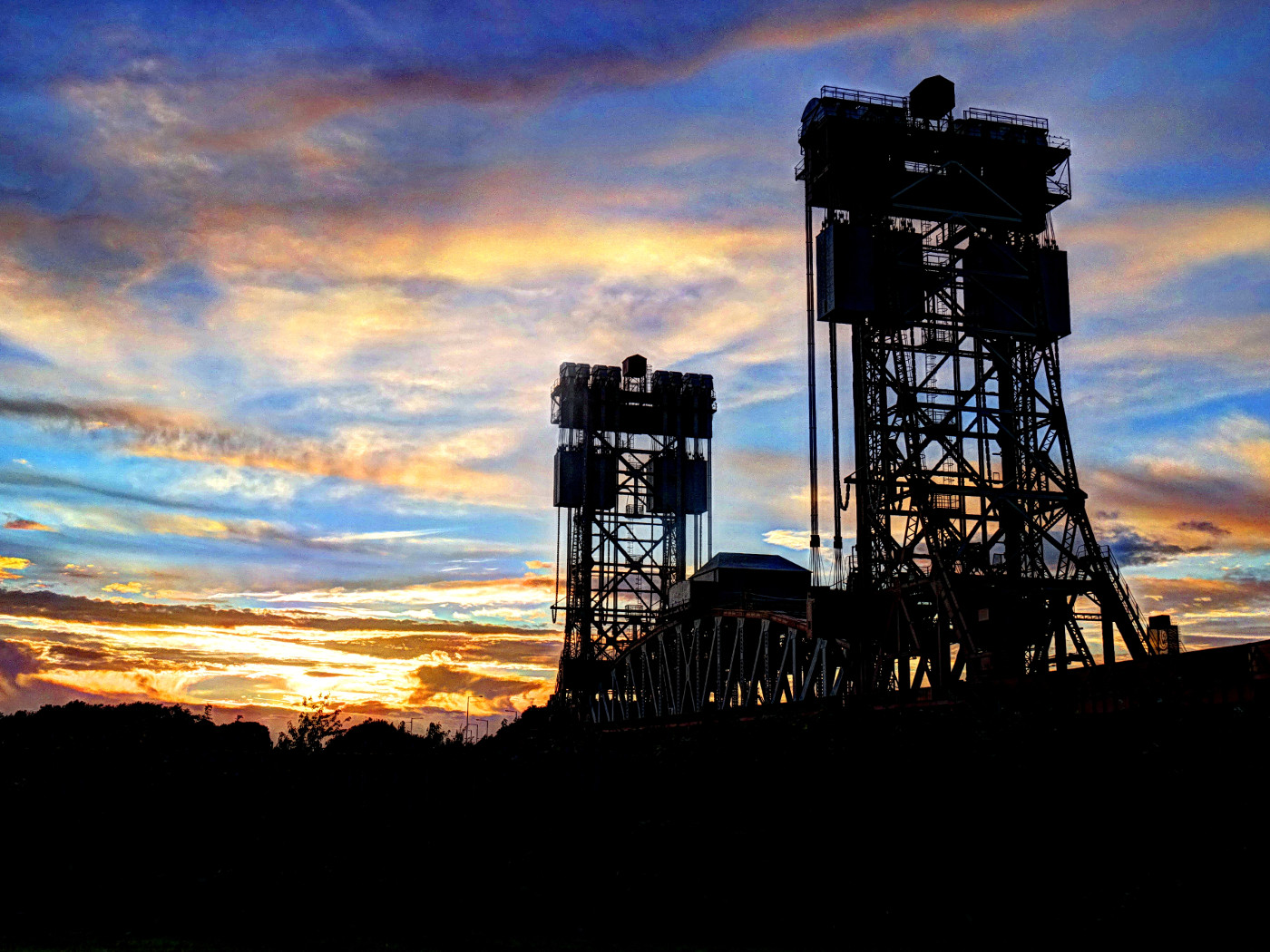
Travelling northward
Ducking through Tees Bridge girders
Over the border
Thousands of rivets
Dorman Long iron and steel
Built by many hands
Leaving Middlesbrough
Visiting Gran in Chilton
Scottish holidays
Ironmasters smoke
Last remains of Cannon Street
Lonely handball court
Dad driving us home
Passing landmarks, counting miles
Through County Durham
A Linthorpe headstone
Jack Thompson fell to his death
Constructing my bridge
Now it swings in view
Around the A19 bend
Safe home in Yorkshire
Majestic bridge lifts
Dad late home from ICI
Ship glides upriver
Crowds for final lift
Klaxon sounds for the last time
No more ships upstream
Francis Annett, Stewart Park

Grey-hard and green-soft
Spiral, carved into square stone,
Coiling in our hearts.
Fingers trace a tale
That lichen is concealing,
Mysteries long past.
Grey marker of memory,
Green figure of our future.
June Hurst, Stewart Park
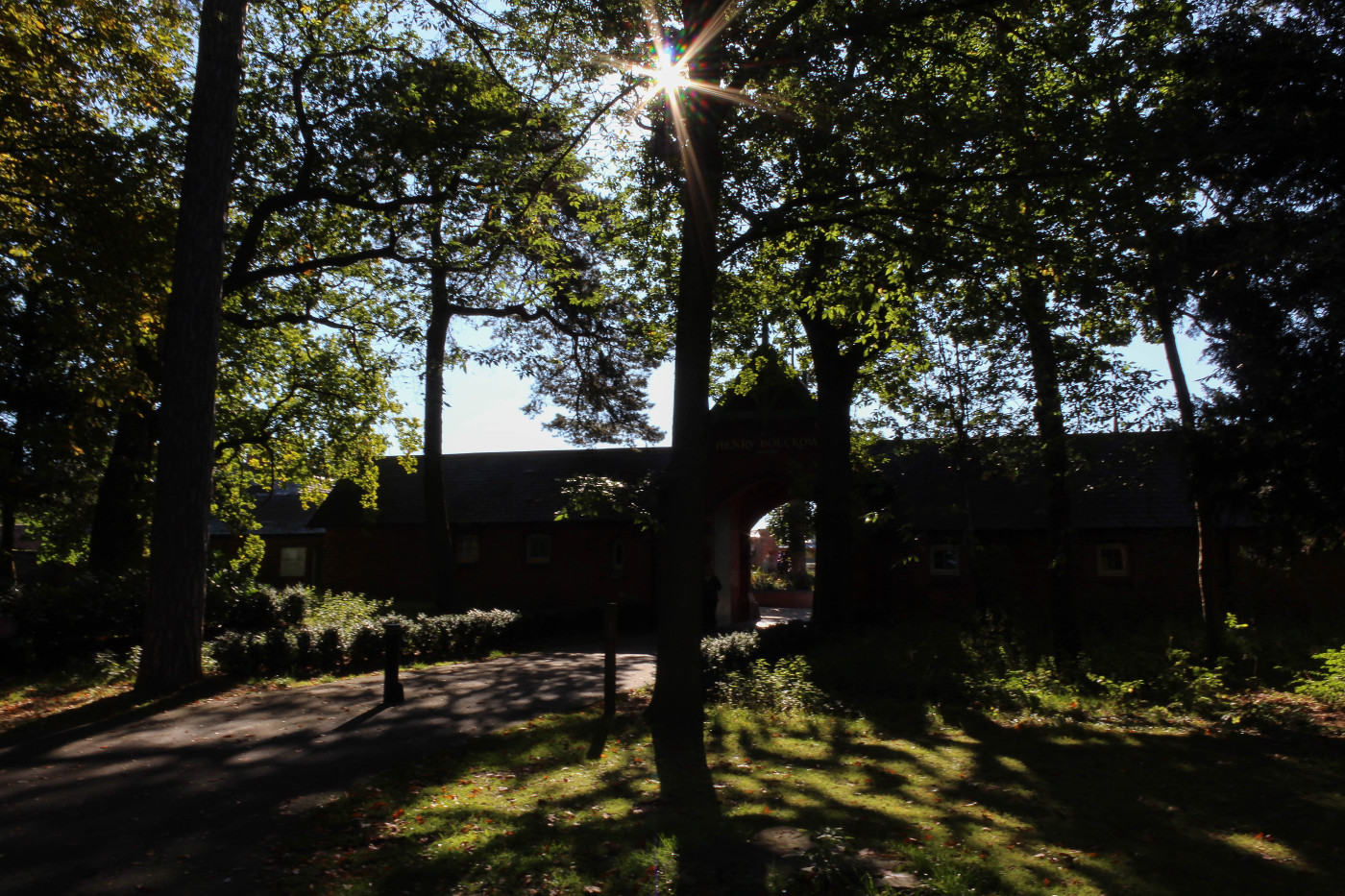
A shimmering starburst of autumn sun guiding through the trees
Still resplendent in their summer foliage
Protecting and silently guarding the archway almost hidden from view
Leaves beginning to fall crunch lightly on the ground
How many years have these silent guardians protected this enchanting view
The earth smells mossy and sweet and on the gentle breeze the smell of lavender softly drifts by
Where it comes from who knows
A scene captured in an instant forever frozen in time
Alan Theasby, A COOK’S TALE
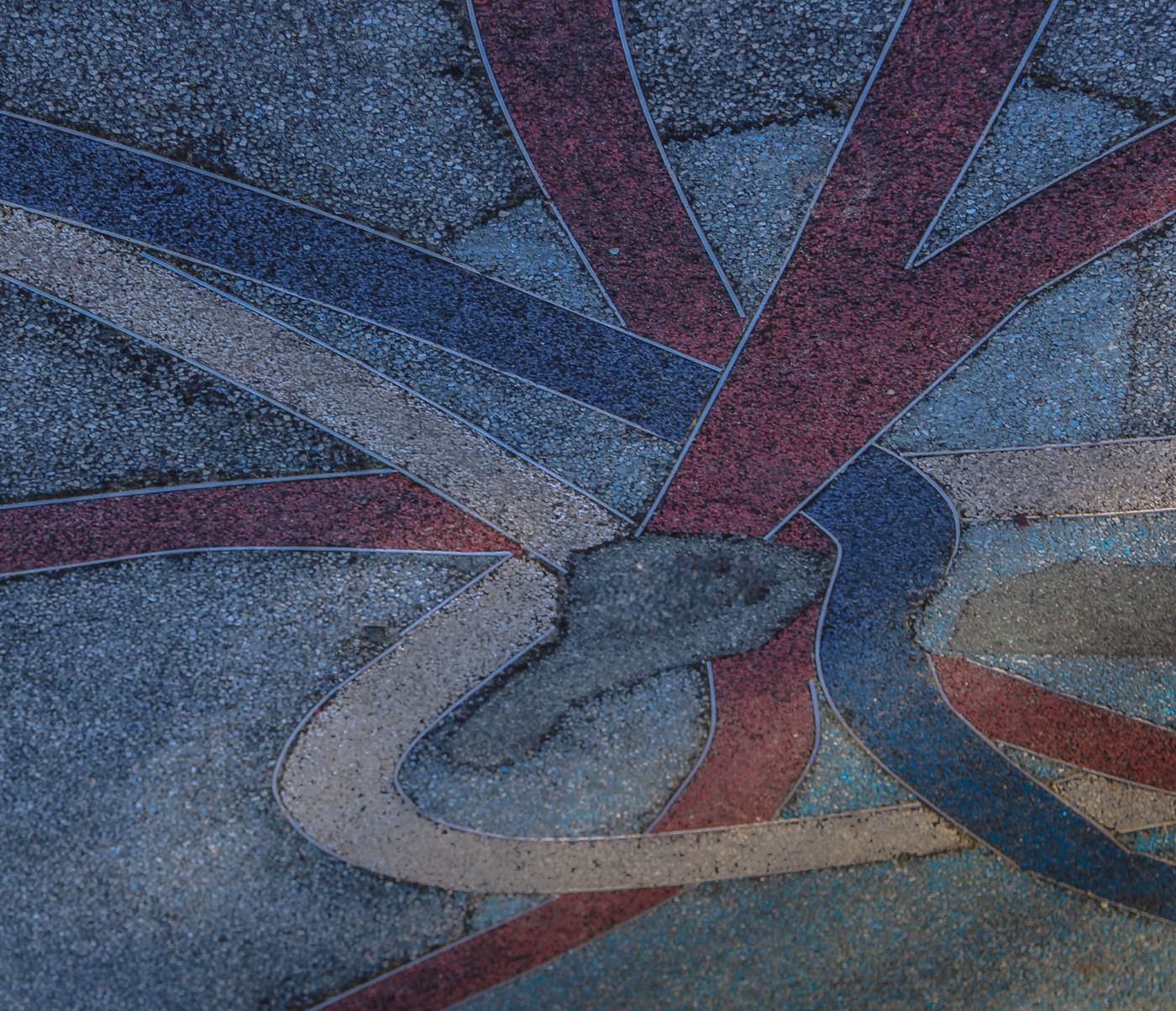
being allegedly a recently discovered lost document
I were only a lad when I fest went out in boats. I’d allus lived near enough to the grey Germanic Sea where fishermen brought back cobles heavin wi mackerills & cods & crunchy lobsters and the like. Aye, well not so much when I were proper little, at mi mam&dads cottage at Martoun but even then we got a whiff o’ the Sea fro time to time, as the wild gales blasted the cliffs and across to our low hills; & mam bought fressh fish from Redcarr sometime, juicy slabs o’ pale veiny flesh enwrapt in silvergrey sharpwet scales.
And then Whitby a course, the cool tang taste in yer mouth, the sea-sprung air & stark smell o’ fish minglin & meltin inta yer hair & skin & yer very lungs & heart & brain until it be part o’ ye, & ye almost forgit it’s there. And on the waves, they were cobles & trawls & Frenchie skein-netters & forrin fisherfolk from icy lands where our great-great-grand-ancestors had come from; & bigger barques & oaken Navy ships wi pennants flying bold to say we are the Maisters of the Seas.
And so there it was, as I grew up: the land or the sea. The choyce was ease enough for me, the ocean breezes called, the spicy aromas of Faraway stronger than the fishy Stench along the Coaste.
Who’d a thought then that I would really get to sail in mine own ship; nay more than that, nor just a skipper but a Captain and commander, searchin the great swirlin Oceans proper, the blue-grey-green-silver expanses, cross the world to seek new lands, new creatures crops peoples spices stories…
Aye, thus I gained fame, if not much fortune. First some good lerning & assiduous studie, dedication to my duties, real interest in the scientifics as well as the practice of Seamanship.
So too, mine English writing improves, that is much important; & the edge of my nor’east talk be softened, tho’ not fully, why it matters not so much as some may think. More that I converse wi men from many districts and also many ranks, from the pow’rful to the lowest, that moderates my speech involuntary.
Van Diemans Land, nay we canna have that name, but a new one to mark our territory. This Other Land, a grand Southen Continent with its black-brown indiginals & gaudy flowers & birds & towering rocks & great bounding beasts the like of which belong in Myths and ancient Bestiaries. And a great grim emptiness at the heart we darest not enter, furnace-hot in day icecold by night: a veritable Hell.
But greatest surprise of all is Ha-waa-ay-ia as the native inhabitants do call. We found our way there first with difficulty and false starts. Afore our voyage there across the Pacific Sea, the ship Endeavour was grounded, with badly rot and leakes that did not need much work to repare; & then great Storms arose to prevent our course.
Why, then, we were greately pleased & gratefull when God let his breath blow straight for us again, and we were ennabled to glide across & under blue, the sea & skies sweet & kind, and so we came to that strange wond’rous archipelago.
The Cheiftans there and aye all they people greeted us most pleasantly and with great honour. They were much curious about our pale skins – tho not so pale as back-home land-live Englishmenn for we were ruddied and leatheren from the sun and wind. Also, our clothing they much admired and dared to touch; as we admired their attire. Their language was most strange, but nay no more than the dialects of othern lands. We considered not, at that time, that our interpreter must have “discovered” these isles previously to our adventure there.
And so the end began for these noble Pacifickers
James Cook (Captain of The Endeavour)
A POEM ADDENDED TO THE DOCUMENT
(being written in s different hand)
The lines converge upon a land now smudged by many footprints here
like worn-out bands of our great flag that traded opium and fear.
‘Twas not the fault of sailormen but those that sent them out to seas
to find new enterprise and gold, exotic spice and slavery.
The colours that we painted then, across great oceans and great lands
have faded since, and some are sad that Britain now’s a small island,
but I am happy that our street are made more merry by the choice
of tastes & colours, arts & beats, that give us now a newer voice:
a voice that says, don’t hog the narrow ledge,
don’t be afraid to look over the edge.
Pat McKenna, A Gateway to Childhood
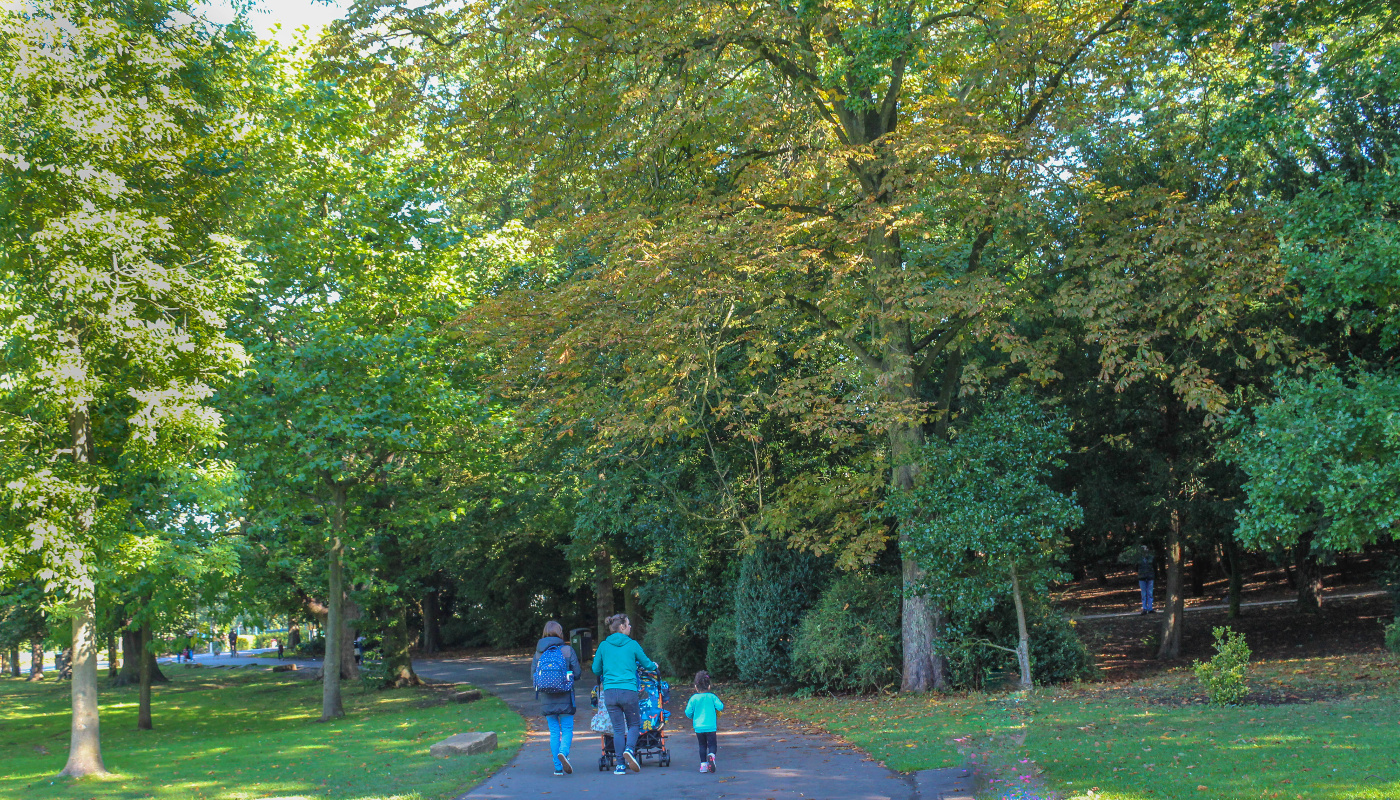
How did we occupy our children in the 1970s? No I-phones, laptops or tablets; very few children’s television programmes; no access to indoor soft play or play factories. Instead we had Stewart’s Park.
At least twice a week, whatever the weather I would wheel my navy blue Silver Cross pram from the garage, snuggle the baby under the hood, tie the toddler into his harness on the top pram seat, check I had the drinks and snacks stored underneath the pram tray, and set off to the Park.
If we were lucky we could stop to watch Captain Cook’s pupils wheeling and squealing around the playground. There was no Parkway Bridge to negotiate, just down past the Country Club, where Mr Amer’s sleek, grey Jaguar would have its usual place outside the front entrance to the hotel. We had to watch out for the pensioners queueing outside the cottage Post Office. I’d try to avoid looking across to Brunton’s the butchers, in case I caught sight of one of the abattoir workers taking a cigarette break in his bloodied apron. Then on through the gates into the Park, where the traffic noise dropped away, and the quiet haven welcomed us in.
The children’s enjoyment was simple and unsophisticated’ chasing after squirrels, hide and seek, building secret dens, feeding the ducks. They could climb Mount Everest on the steps in front of the Conservatory, or go and see if the peacock would open his magnificent tail for us that day. We’d always say hello to poor Mr Fox, prowling his cage, his coat a dull rusty colour. The squawks and screeches from the parrots in the aviary often drew us into the walled garden. In Autumn we collected acorns and conkers. Winter brought the dangerous thrill of sledging down a very crowded hill, ending in a tangled pile of children and adults. The Conservatory’s heat would offer an escape from the frosty air. The delicious smell of cyclamen led us away from the goldfish into the forest jungle. I’d emerge with steamed glasses, ready for the long haul up the hill on the way home.
I often arrive by car to Stewart’s Park nowadays, and the grandchildren race ahead to the playground. We can warm up in a café with a hot chocolate and then travel to far away countries of the world in the Captain Cook Museum; but the simple pleasures are still to be enjoyed. There’s the re-opened walled garden with its overgrown secret corners. The ducks still bicker and fight over our healthier offerings, and the dogs still gallop across the wide expanse of grass, freedom expressed in every excited bark. Stewart’s Park has been open to the people of Middlesbrough for…years. All it takes is for the latest generation of parents to step through the open Park gates.
Janet Lancefield, Chipchase Road
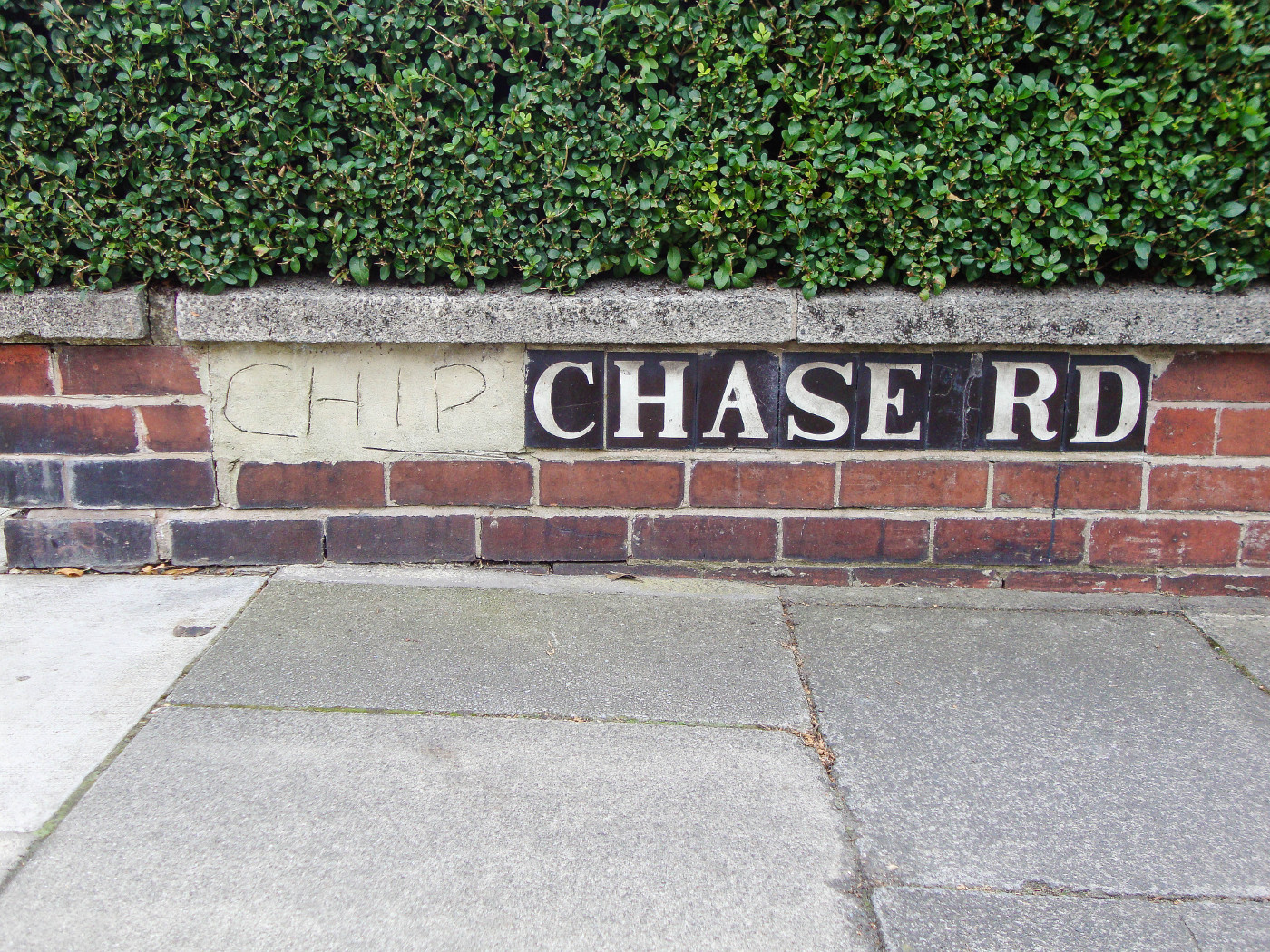
My orderly life
And manicured hedge are marred
By missing letters
Determinedly I
Scratch the shapes, coughing at dust,
Doing it myself.
I want you to find
Me, here in my road, proud of
My identity
Janet Wales, #everybody_smile

you are the star of your own show
so everybody smile
this is 2017 the age of the selfie is now
the age of facebook and instagram
where every moment and every thing
needs to be captured on film and shown to the world
the age of likes that let you know
you are looking good
feeling cool
enjoying your life
so everybody smile
we are the stars of our own show
Sylvia Jones, Dairymaid of yesterday
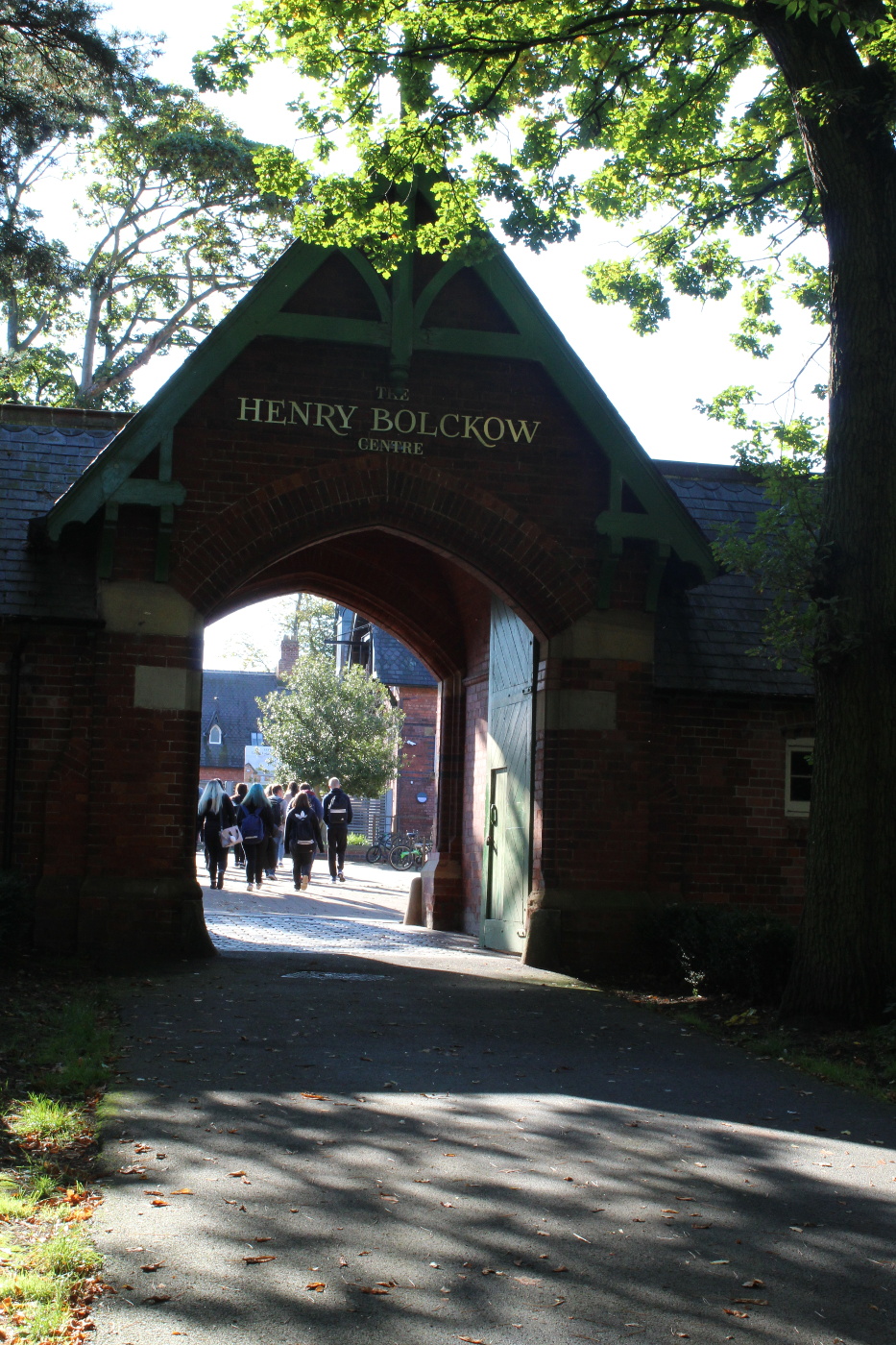
Stewart Park
c/o Staff Quarters
Dear Schoolgirl of today
You have just walked through the big doorway into my world of a hundred years ago. Surrounded by high walls to keep us separated from the big house. This elegant quadrangle is home to the under gardeners, junior house servants and the dairy maids. This is our world, where we lived, worked and, given the chance, flirted with the gardener’s boys.
I worked from 5.30am till 7pm. My first job in the morning was to get the milk cooled and up to the big house for breakfast. Next we churned the butter. If there were guests we would separate the cream from the milk, pour it into wide shallow dishes and cool it so that it became clotted cream, much appreciated by the guests. I started work here straight from school. Now I am just a little older than you are and have been promoted to head dairy maid, making me responsible for keeping this lovely dairy spotless.
The Frist World War was the catalyst for change, giving women the opportunity to take over men’s skilled jobs, giving them better wages and independence. The suffragettes will win the vote for us. This will give you lots of advantages. University education and the Equal Pay Act will make women of your generation fully independent.
Enjoy all your advantages, live wisely, love freely. Remember the suffragettes suffered to win the vote for you. Use your vote!
From the dairymaid of yesterday
Marie Arthur, Town Hall Clock
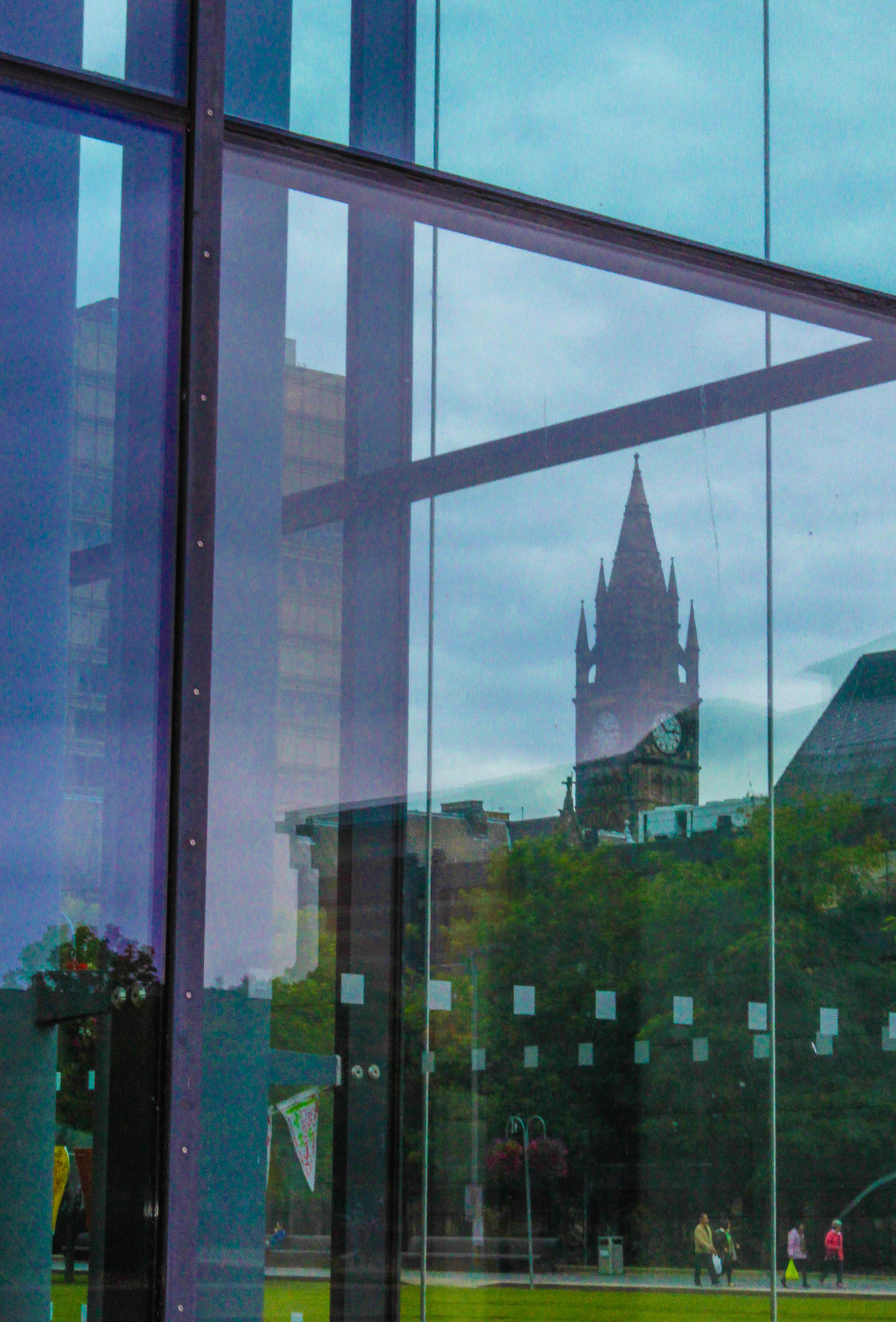
Oh lovely clock – always there
No matter the weather – foul or fair
Keeping us in check, day and night
Your regular chimes, putting us right.
Am I early or late
To meet a new love on our very first date?
Have I missed the bus? What time is the next?
If I’m late for work, the boss will be vexed.
Doctor’s appointment, will I make it?
Gosh I’m late, do I lie and fake it?
I’m going for an interview, are you fast or slow?
I arrive on time – smile – say hello.
I keenly dash to my new job, elated
I see your clock face – I’m stimulated
My friend, keep me right, don’t let me down
Standing tall and proud in Middlesbrough town.
Marie Arthur, mima
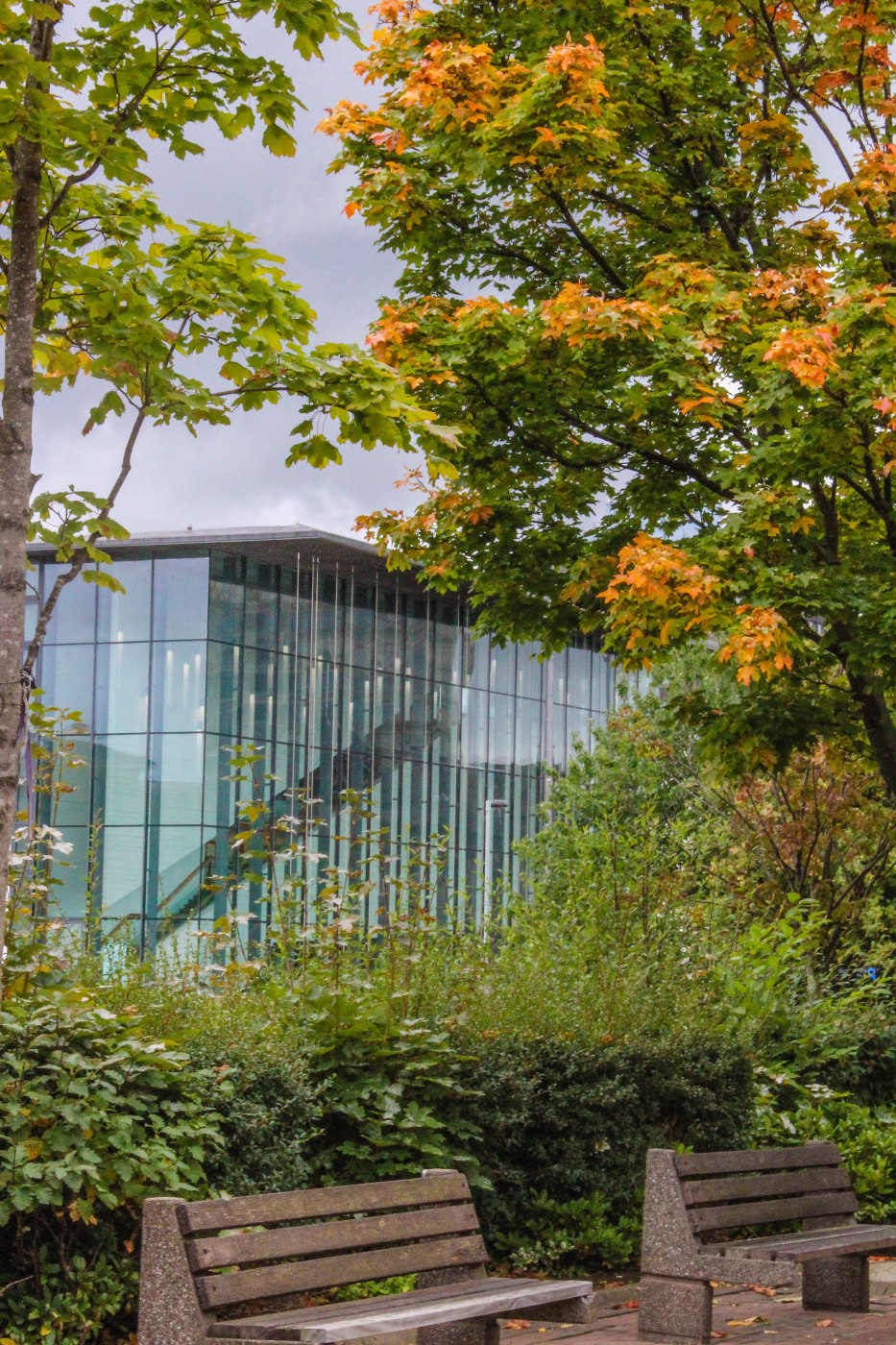
I miss you my love, sitting her on our favourite seat in our special place. I
miss the contentment we shared, as we look at the beautiful russet leaves,
getting deeper and richer as the days shorten. Our favourite gallery
looking over us, letting us glimpse into another world of paintings,
sculptures and jewellery from places we can only imagine visiting, taking
us to culture and beauty beyond our wildest dreams.
I miss sharing these things with you, my darling.

Sven Olaf McLean, Perfectly Timed in the Present
A calm day in Central Square:
water spurts from the fountain,
people scattered, watching the spray,
viewing the scenery; green grass
cut at the right time. The weather
has broadened it out. Birds singing
like a chorus. The fountain,
perfectly timed, makes a fan shape,
and then settles down. Fresh, full
trees and an unusually fresh day.
The Bottle of Notes just visible,
clean and tidy. In the evening
it’s a picture within a picture.
Luminous. Spectacular (especially
with binoculars). People passing
through, following the lights
and the stars at night.
Sven Olaf McLean, Perfectly Timed in the Future
What about five years’ time?
Has MIMA changed?
Is the pond still there?
Are they going to start afresh?
What and where are the plans?
Will it look better?
How many offices will there be?
What, if anything, will be replaced?
Where’s the funding coming from?
Is it privately financed or council funded?
What about the future?
Will it all be better?
Scribed by Natalie Scott
Barbara Neal – Stewart Park – A Moment of Peace
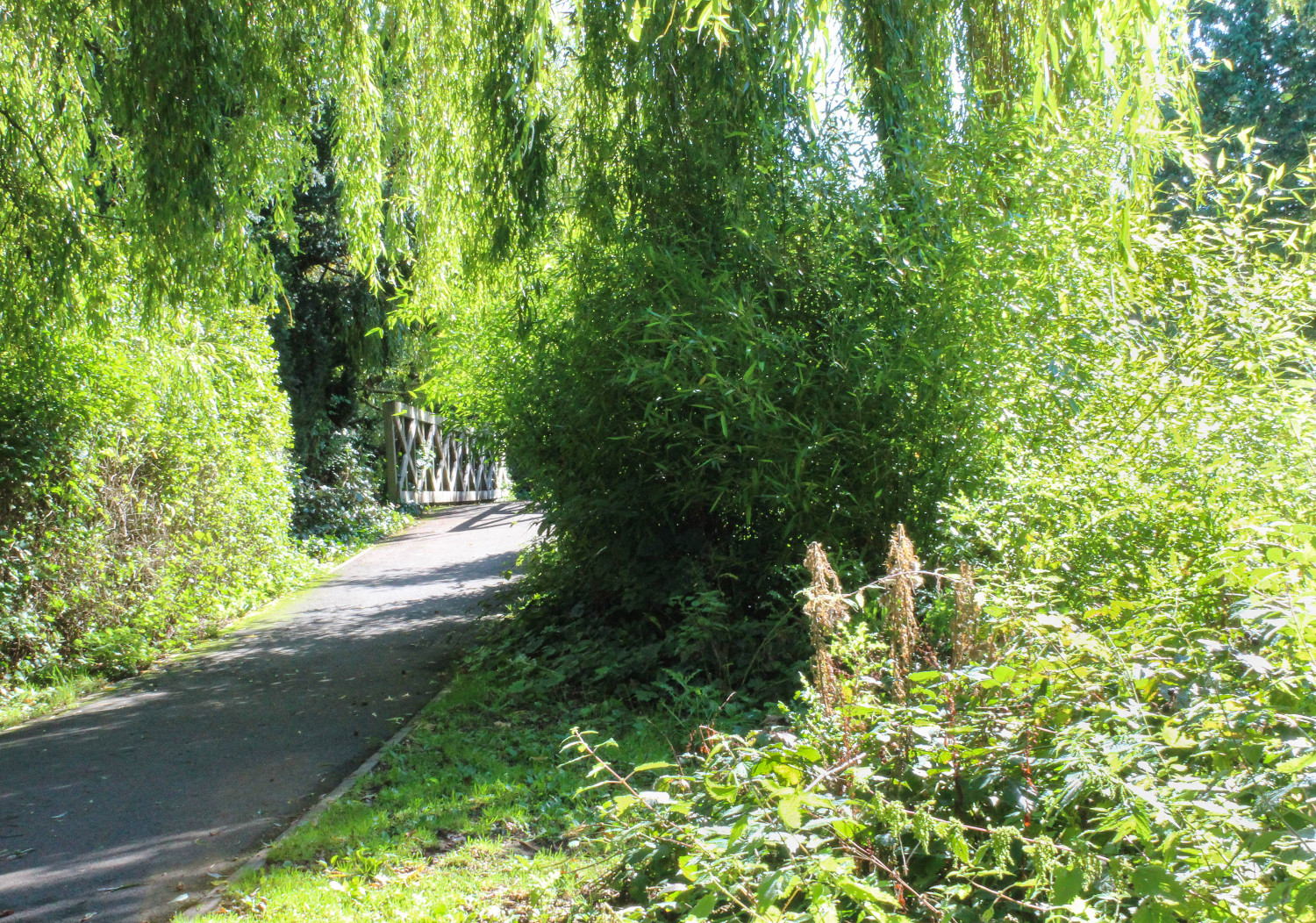
Stewart Park is a 120-acre park in the Middlesbrough suburb of Marton. It was originally landscaped by Henry Bolckow, Middlesbrough’s first Mayor and one of the town’s ‘ironmasters’. In 1924 the Park was bought by Councillor Thomas Dormand Stewart for the people of Middlesbrough to have an ‘open and accessible space for all time’. Stewart Park was officially opened to the public on 23 May 1928. The site of the ‘lost village’ of East Marton can be found it the park as can the site of the cottage where Captain James Cook was born.
She sat on a dusty wooden bench (bequeathed by a man forgotten but for those who loved him) enjoying a moment of peace, the early autumn sun warming her bones, the almost-not-quite-there breeze playing with her hair.
In her moment of peace she was still aware of two little boys running round the pond, joshing, shouting, competing. She could picture them racing over the leaf-slimy shade under the weeping willow, “don’t slip”, past the squawky, flappy, bread-filled ducks, “don’t crash into anyone” and skidding through the muddy puddle on the corner, “shoes to clean again tonight”.
They burst onto the wooden bridge in a noisy, messy bundle, her moment of peace now shattered but wait …
It took only the shortest of time for her mind to clear but she was stunned all the same … grandchildren??
Where were her little boys?
Where had the last 30 years gone?
Ellen Griffiths – Changing Middlesbrough
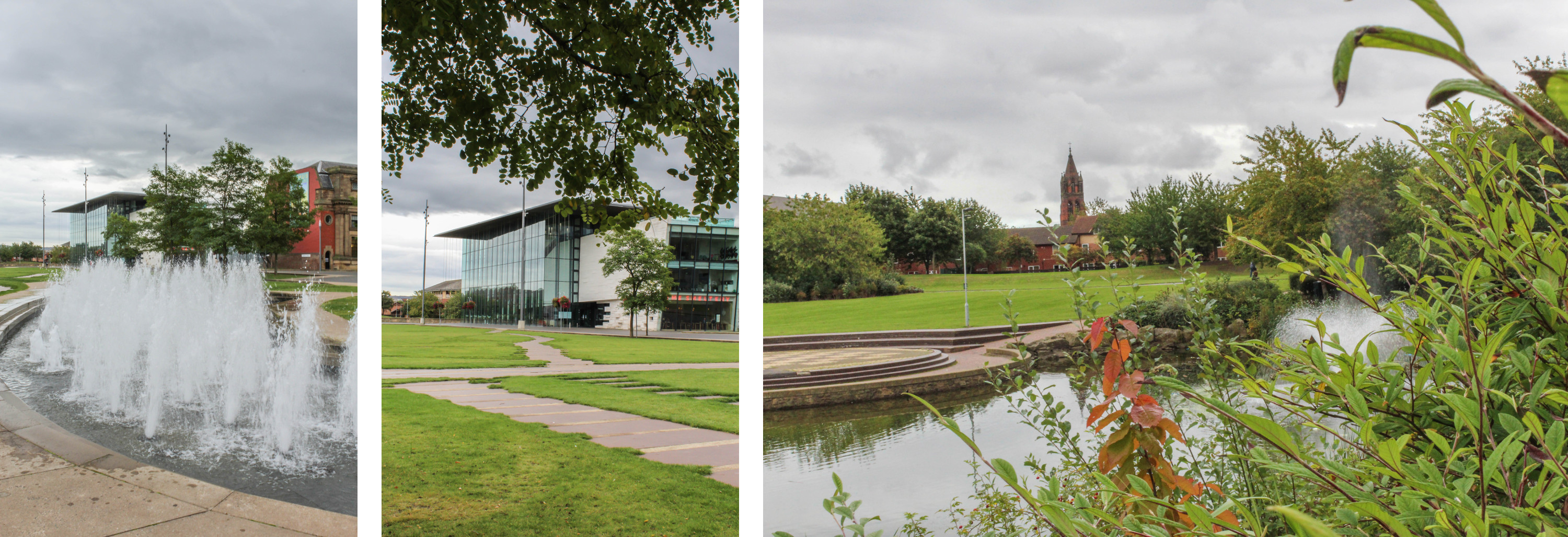
It’s early morning; the town is just blinking away sleep. Central square is peaceful, no crowds, the dew still undisturbed. The fountain is performing its sequence, bubbling, creeping higher before it bursts with the promise of new beginnings. The changes of Middlesbrough exploding out from burgeoning ideas to be viewed, discussed and on some occasions accounted for, but not always. Sometimes the reach of excuses diminishes what could have been a new frontier founded on sincerity, a genuine thought for, and love of, the people of this hard-working town. I remember that well.
I have a definite direction as I walk across the rusted plates embedded in the grass. A modern art installation weaving, spreading, changing direction, enticing the mind to look this way or that and to stop as I did. To stop and take in the space, to breathe in the openness all town centres need if they are to be welcoming rather than overcrowded invaders of personal space.
There has always been an open space between the library and the town-hall; Victoria Square which had a friendly tone when known as old man’s park. At that time, it was more enclosed surrounded by bushes and often filled with people wanting to sample the sun in lunch breaks. In later years, as people forgo their lunch breaks eating at their desks so as to send or check another email, old man’s park was taken over by alcoholics and drug users. Opening the square has reduced their numbers though some still have the need for the ambivalent companionship of the likeminded and a view of nature as they pour the soothing balm of alcohol or drugs on shattered lives; overlooked and ignored. These too, are changes in Middlesbrough and the gentrification of tiny street houses into bars and leisure outlets has added to a diverse sophistication, needed and embraced.
I walk on. Reaching up to the sky is MIMA, Middlesbrough Institute of Modern Art, a blessing to a town that is often ridiculed as lacking in high culture in favour of working men’s clubs. There is beauty in both. The community that develops over pint or a port and lemon produces its own art; if not seen on the walls of galleries around the country, it is certainly etched on to the faces of those who keep the veins of the town pulsing. But what a glory: that kids, adults, the elderly and those who may have felt alienated from Art for Art’s sake, or had to travel elsewhere to view it, can now enjoy the everchanging offerings put forward by an institution that reaches out as well as invites in.
To the side of MIMA there is… The Pond. A calming peaceful place encouraging nature to coexist with the high art of the gallery. I’ve always loved the idea of that. That, in its self, is a statement of understanding how we learn to work together, to produce environments that draw in and give the soul a chance to experience up-close and personal, something that in the hustle and bustle of day-to-day living, can so easily be missed. The mix of the two, and that one informs the other, is treasure unfolded: to feel, see, hear and soak up. You can imagine then my dismay on hearing that nature is to be forsaken in favour of yet another office block.
Was it that no other site could be found? We often see ‘To Let’ in the windows of office blocks that require interpretation and use. Was it the arrogance of a financially fuelled firm that believes they have the right to rob the town’s people of a sanctuary, or was it endorsed by the attitudes and vices of men whose self-preservation is rooted in the financial rewards of their salaries? The cry “it will provide jobs” is hollow when the ‘To Let’ is ignored in favour of destruction.
Give nature a home, where the wild things grow in the cities and towns, not only the nooks and crannies long forgotten and by-passed, but a home in the heart of the town giving succour to its people. The bounty of nature gives everything of itself; the least we can do is provide the ground on which it can flourish. The changing face of Middlesbrough needs to hold on to what is beautiful from the past to inform its renewed future. Art for Art’s sake, and Nature for All.
Disclaimer
Views expressed on this page are the views of the individual authors only. They in no way represent the views of Middlesbrough Council or the Arts Council.




Recent Comments